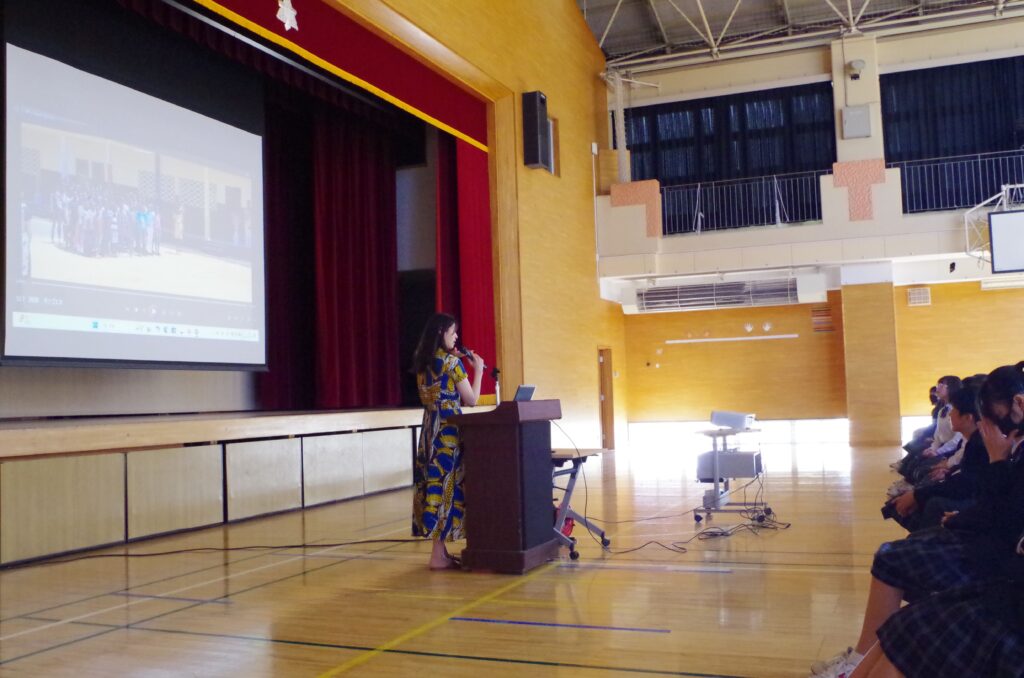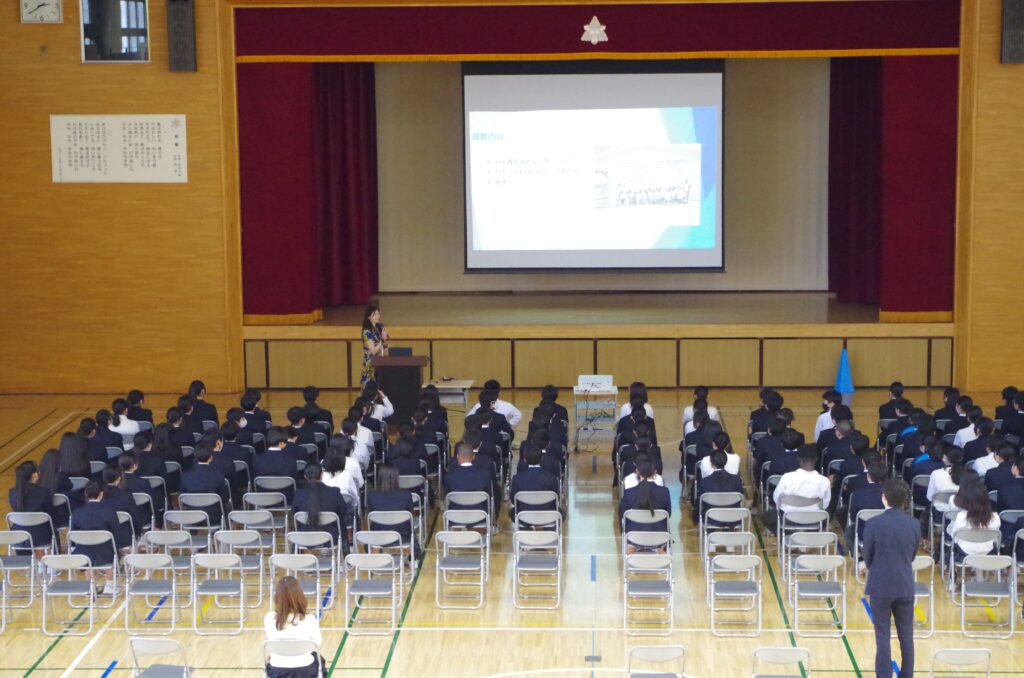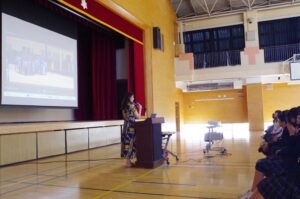Friday, February 7
Director Sugimoto of Shokoji Nursery School Yoshidamachi gave a lecture to 124 sixth graders at Nakadai Junior High School in Itabashi Ward, Tokyo. The theme of the lecture was "Let's listen to the stories of people who have actually been out in the world and cultivate an attitude of trying to solve problems in Japan and the world." It was also positioned as an opportunity to learn about the current situation in developing countries and think about what we can do.

"The path to international cooperation and early childhood education"
In her lecture, she talked about why she left childcare work to choose the path of international cooperation, including the reasons and triggers, as well as her own career and background. She also touched on the differences and similarities with Japanese early childhood education, and in order to empathize with the junior high school age group, she shared her own experiences, such as "what dreams and thoughts did you have when you were a junior high school student," and shared more familiar and realistic episodes.
Differences in early childhood education in each country
Director Sugimoto introduced the fact that early childhood education differs greatly from country to country. For example, kindergartens and daycare centers in the Republic of Gabon focus on basic learning such as reading, writing, numbers, and colors so that children do not have any difficulties before entering elementary school.
On the other hand, in Japan, education that develops through play is mainstream. In Gabon, there are exams and children as young as three sit at a desk and work on a workbook for an hour. The difference is so great that Japanese early childhood education can be likened to a cram school.
However, what is important is that rather than judging these differences as "which is right and which is wrong," recognizing the ways of doing things that suit each country is the first step toward international understanding, and from there various activities will be born and deepened.
"Accepting diverse perspectives and "kind and gentle childcare""
Based on his experience in international cooperation, Director Sugimoto emphasized the importance of accepting differences in early childhood education. By understanding and respecting the educational methods of different countries, children can gain a broader perspective and develop an awareness of how to solve problems in the future.
Shokoji Nursery School values "kind and gentle language" childcare, which is childcare that cultivates children's hearts and independence by caring for each other with warm smiles and kind words. Director Sugimoto's words about recognizing and respecting different cultures and educational methods are also firmly based on this point. By practicing "kind and gentle language childcare," children can discover their own potential in a safe environment and learn new things every day.
"Turning differences into learning, and moving towards the future together with our children"
This lecture provided an opportunity for the children to once again realize the importance of learning about and accepting the diversity of the world. "Encountering new cultures also leads to personal growth" - the children seemed to be deeply captivated by Director Sugimoto's enthusiastic talk.
At Shokoji Nursery School, we respect the individuality and potential of each child and strive every day to create a warm environment for "kind and kind childcare." Director Sugimoto's experience in international cooperation and deep insight into early childhood education will be a great encouragement for each of us to take a new step toward the future.



